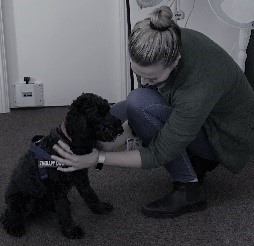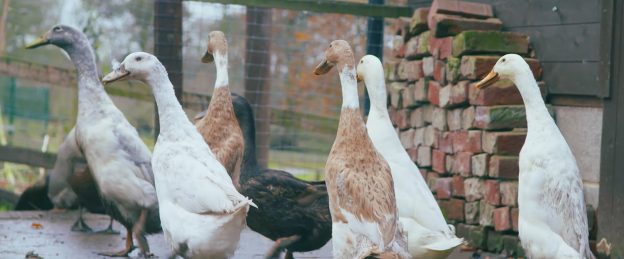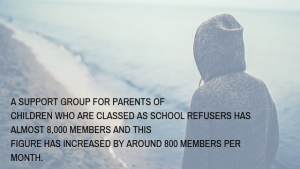Bladon House School have well and truly got into the Festive Spirit. Staff and young people took part in Save the Children Christmas jumper day. Students collected and counted all the donations.
Below are some of the fabulous jumpers and beards!!!!!






Bladon House School have well and truly got into the Festive Spirit. Staff and young people took part in Save the Children Christmas jumper day. Students collected and counted all the donations.
Below are some of the fabulous jumpers and beards!!!!!




Giving young people a voice and listening to their views is key to building their self confidence and self esteem. Students at Bladon House School have just finished voting for their Head and Deputy Head Students. Both students had to write and deliver a speech to their peers about why they should be voted for. Democracy in action. Congratulations to them both.

Bladon House School students joined in Children in Need Fun to raise a fabulous £170.
Hydra class organised a tombola to raise funds, and staff and students dressed up in pyjamas and onesies and made donations.



We are thrilled to announce that we are opening a new special needs school in Mackworth, Derby. Maple View School is located on Prince Charles Avenue and is being developed to meet the specific needs of children aged 7 to 16 years who have moderate to severe learning difficulties. The school will have places for 16 pupils, 8 day pupils and 8 pupils on a residential basis. The school will open its doors to day pupils in February 2020, with residential pupils joining the school around Easter.
The building is currently undergoing design and development work to meet the specific needs of the pupils and will offer light, airy, flexible learning spaces, as well as quiet areas and break out rooms. The residential facilities are modern, spacious and homely. There is also has a large secure garden and play area, all making it a fantastic place to live and learn.
The school will offer fully individualised and inclusive education encompassing Education, Care and Therapy to meet pupils’ Education, Health and Care Plans (EHCP). Children will have access to a range of professionals including Speech and Language Therapy, Occupational Therapy, Educational Psychology, Psychotherapy, Psychiatry and Physiotherapy.
Chief Executive, Richard Atkinson said “As a group we have over 25 years’ success in achieving positive outcomes for children and young people with special education needs. Our unwavering drive is to ensure that children and young people have every opportunity to maximise their potential. We know that given the right environment, a fully individualised curriculum and detailed care plan we can make a real difference to the lives of children and their families. We very much look forward to extending our ability to meet the specific needs of pupils with the opening of Maple View School.”
Keep looking out for updates on the development of the school site and for job opportunities.

Great News!
We’ve been recognised as one of Derbyshire’s Top 200 Companies for 2019 by the University of Derby College of Business, Law and Social Science.
Of course our services are not only based in Derbyshire but spread across the country.
There’s absolutely no data on the number of dogs currently working in schools across the United Kingdom. There are also no scientific conclusions on the impact of having dogs in schools. There. I’ve said it. There’s nothing out there for me to base the truth of this blog on…so why am I writing it?
Because having a school dog has made a huge difference at our school.
Did you, for example, realise that having a school dog could improve the reading skills of young people? Or raise their self-esteem? Or help them to make friends?
As a headteacher, having a full-time school dog has quite literally been a revelation. It wasn’t an easy decision to make initially. I am naturally quite a risk-averse leader who bases most of my important decisions on a thorough, careful scrutiny of all the evidence I can get my hands on.
I always try hard to read evidence which both supports my instinct but, also take into account information that is counter to my instinct before I come to a decision. Clearly, this need for evidence proved problematic in the preparation for the decision to have a school dog as there’s simply nothing concrete out there.
The school had had a dog before, for a couple of days a week which had proved popular with our students. But the feeling among the Well-being Team in our school was that there was a lot more we could do… if only we had our own full-time dog.
They really believed that anything was paws-ible…

So, two years ago we took a leap of faith and employed Bramble, our school dog – a black, 2-year-old Cockapoo (in case you’re wondering, she’s paid in affection, walks and treats!).
Here she is in one of her favourite places – in my office on my chair!
“Dogs are a powerfully cost-effective way of helping children feel more secure at school and a low-tech approach to reducing anxiety”. Sir Anthony Seldon (Vice Chancellor University of Buckingham).
I couldn’t agree more.
Before we welcomed Bramble into our school, all parents and carers were asked for their consent (or not) for their child to be allowed access to her. We have always been very clear that she is not an Assistance Dog and she is not a Pets As Therapy Dog (in other words, she’s not formally trained to any nationally recognised standard). She is, quite simply, our school dog and part of our Well-being Team, joining our Well-being Officers and our Clinical Psychologist and Psychotherapist.
How did we choose her?
Of course, when we chose her, there were certain things we needed, like she had to:
But other than this, we were open to any breed.
How does she help?
Since her arrival at our school, we have used Bramble in a wide range of activities and the results are remarkable – with some even we didn’t expect. Just a few of the ways she’s helped our students:
To improve the reading confidence of our students
 Students who have found it challenging to read aloud in front of peers have been supported to read to Bramble outside of their classroom instead. Her non-threatening, friendly response has led to many students being able to transfer their growing reading confidence into their classroom over time.
Students who have found it challenging to read aloud in front of peers have been supported to read to Bramble outside of their classroom instead. Her non-threatening, friendly response has led to many students being able to transfer their growing reading confidence into their classroom over time.
To reduce anxiety
Students who felt unable to speak directly to a member of staff about their concerns have been able to talk to Bramble about what’s on their mind. They’ve told her of their fears with a member of our team in the room, and we’ve been able to respond to their issues directly as a result.
To improve the ability to think of others
We’ve been able to develop empathy skills in our students using Bramble. We’ve supported students to follow care routines and guidelines for her, teaching them to put her needs before their own.
We’ve taught them about the need to use a calm and quiet voice and small movements in order to get a positive response from Bramble. This has then allowed our team to generalise the need to, and importance of, thinking of others as well as ourselves, along with considering how our reactions make others feel.
To provide companionship and a friendly welcome to school
Bramble has been cited by parents and carers more times than I can count as the reason my child could make it into school. In my previous blog Why school refusal shouldn’t be seen as school rejection I spoke about the overwhelming levels of anxiety that some young people feel about school.
The offer of time with our school dog has on many occasions been the vital initial stage in getting a young person over our threshold and enabling them to take that first, tentative step towards getting back into school and fulfilling their potential.
My theory (totally unscientifically backed of course!) is that Bramble provides our students with an endlessly non-judgemental response to everything they do and say. She allows our students to be themselves without comment or judgement and, through her, they grow in confidence with their peers.

But it’s not just about what our school dog offers our students. Just like every headteacher in the country, I am also always looking for ways to improve the well-being of our most valuable resource…our staff. The impact that our school dog has on the well-being of our staff can’t be underestimated either.
She welcomes the staff in a morning as they come in and the unbridled joy  she brings on cold, wet, dark mornings over here in the Peak District is often infectious. Our days generally begin with a smile when she’s on site and when days begin with a smile, they tend to be more productive than when they don’t wouldn’t you agree?
she brings on cold, wet, dark mornings over here in the Peak District is often infectious. Our days generally begin with a smile when she’s on site and when days begin with a smile, they tend to be more productive than when they don’t wouldn’t you agree?
But what about those staff who don’t like dogs?
We are very clear with our staff about the locations in which they can expect to encounter Bramble. This allows all staff who aren’t keen on dogs to move around the site confidently. In fact, at least two of our staff who weren’t keen on dogs before they worked with Bramble have now changed their mind about dogs.
And how do I know that she’s having a positive impact? It’s on the faces of the staff and students who spend time with her and in the feedback I get from the parents and carers of our students.
And now for the science bit…
The positive impact of Bramble in all aspects of our school life has been dramatic and while I have no scientific evidence to support this hypothesis (other than she receives more Christmas cards than I do!) – I couldn’t be more certain of its truth…
If you want to learn more about the positive impact that a school dog can have for young people with High Functioning Autism, come and see us. But be sure to call in advance because Bramble’s diary gets pretty full, pretty quickly!
About me:
I am Sara Forsyth, the Headteacher of Alderwasley Hall School and Sixth Form and I have almost 25 years’ experience in SEND, in particular working with young  people with Autistic Spectrum Disorders. Alderwasley Hall School and Sixth Form is an exceptional independent SEN school for young people with ASD and associated needs in Derbyshire.
people with Autistic Spectrum Disorders. Alderwasley Hall School and Sixth Form is an exceptional independent SEN school for young people with ASD and associated needs in Derbyshire.

Bladon House School have released their latest video which highlights the great opportunities students have to learn about animal welfare and horticulture, as part of Land Based Studies. This gains them nationally recognised qualifications as well as lots of fresh air and fun.

Written by Sara Forsyth, Headteacher of Alderwasley Hall School and Sixth Form
I read a news article last week on the BBC about a Derbyshire family who were being threatened with a fine for their son’s non-school attendance. The boy, a 15-year old student, has been diagnosed with Social Anxiety Disorder. This condition is often referred to as School Phobia or, I would argue, less helpfully – School Refusal. It’s generally diagnosed by a Child Psychiatrist but remains largely misunderstood by many schools who often don’t have the resources or capacity to explore the underlying reasons for a persistent non-attender in any real depth.
The article reminded me of the absolutely crucial need for young people to receive the right educational setting to meet their needs. And getting the right school as early in a child’s educational career as we can, is always a positive investment for the future.
School refusal: My experience as a Headteacher
As the Headteacher of an independent SEN school for young people with High Functioning Autism and associated anxiety, I am inundated with enquiries from parents who have a depressingly similar story: their child is currently out of school, spending long hours withdrawing from social contact outside of the home and this has been the case for often 12 months or more. Their child is usually keen to learn and clearly has the capacity to do so but becomes emotionally distressed at the thought of attending school. The experience that their child has had in school has left them feeling that there is no school placement for them and this can be a mindset that is incredibly hard to change.
Our experience is that it can often take weeks of patient, carefully planned, phased visits. We will start with a video of the school, viewed where they feel safe (in their own home). This then leads on to the child actually walking onto the school site. The visits will usually involve time with our school therapy dog (here’s Bramble in our grounds) and the length of time spent on site will gradually increase over time. Visits to actual classrooms are often the very last element of the plan before a child might begin to accept that they have a future within an educational setting. And that this marks the start of their new journey.
For the placement to have any chance of success there are some essentials that our experience tells us need to be implemented from day one:
1: The environment needs to be right
This means as a minimum having an environment with low noise levels and low levels of disruption and room to move around.
2: The group needs to be right
This means having small groups with high staffing ratios. The team working with the child may include specialised therapy team members (we employ Speech & Language Therapists, Occupational Therapists, a Psychotherapist and a Clinical Psychologist). It also means having an appropriate peer group. Children with Social Anxiety Disorder need to be surrounded by peers with similar abilities and needs so that they feel like they fit in. They already feel isolated from education so making them feel that they belong somewhere is key to a successful placement.
3: The Curriculum needs to be right
It’s crucial to have the right curriculum in place – one that offers a flexible, student-centred programme of study with an appropriate level of academic challenge that builds on success to improve self-esteem. These students often have a perception that they have failed at school and having a curriculum that both challenges them but offers success is vital to being able to change their perception.
In the BBC article, a solicitor commented that they are working with 20 families of vulnerable children with school attendance issues, who feel that they have no option other than to take legal action.
If the evidence I have just from the enquiries I receive reflects the national picture, then I suspect the figure across the UK is significantly higher - and is increasing year on year.

[NFIS Facebook Group stats from September 2019]
So often I find myself sat in an Educational Tribunal Hearing (usually after two or three postponements, but that’s a whole other story!) listening to a desperate parent pleading for a chance to be believed that all their child needs is the right school and they will flourish.
With the right school, they know that their child will fulfil their huge potential. They know that if placed in the right school their child will eventually contribute to society in a way that, if they’re left in an inappropriate placement they most certainly won’t. They know that if placed in the right school, they will avoid the deterioration in their mental health that will almost inevitably happen if they remain where they currently are.
To be clear, these parents are not saying that the school their child has been in is a bad school; it’s just not the right school for their child.
The mental health charity Mind has called for school refusal to be given more recognition in education. I’d argue that, until this happens and sufferers receive the appropriate placement to meet their complex needs, the numbers of young people out of school through anxiety about attending will only continue to rise.
To learn more about the importance of the right mental health provision in a school like ours, click here: https://senadgroup.com/alderwasley/videos/
To read the full BBC article click here: https://www.bbc.co.uk/news/uk-england-derbyshire-49726011
About Me
I am the Headteacher of Alderwasley Hall School and Sixth Form and I have almost 25 years’ experience in SEND, in particular working with young people with Autistic Spectrum Disorders. Alderwasley Hall School and Sixth Form is an exceptional independent SEN school for young people with ASD and associated needs in Derbyshire.

Well! What a night we had last night with Unique Art Awards and Copthorne Tara Hotel. You saw our incredible entries for this year’s competition on our Facebook page and I am sure that you’ve all been on the edge of your seats, waiting to hear how we got on.
The awards were presented by ITV newsreader Alistair Stewart and the whole event was simply wonderful but now – the news you’ve all been waiting for…Out of over 200 entries our two students both won Gold in their categories. In the overall winner category they won Bronze and Gold! What an incredible achievement! Thank you to all the staff involved and well done to our students. Like I always say, Alderwasley Hall delivers outstanding outcomes!!



Congratulations to Sue Hart, our fantastic Training Manager, who has worked for the school for a whopping 30 years!
Sue started her career at the school as a Support Worker. She then progressed to House Manager, then Deputy Head of Care, before moving into a training role.
Sue is now Training Manager for the school and also supports the care team at Bladon House School.
Ginette Clarke, Group Training and Development Manager said “Sue is a really well respected member of the Alderwasley team and a wonderful part of the Groups training team. She provides invaluable support to everyone she works with”.
Sue is pictured (Centre) with Karen Tatham, Head of Care, Emma Illingworth, Head of Therapies and Bramble, the schools fabulous therapy dog.